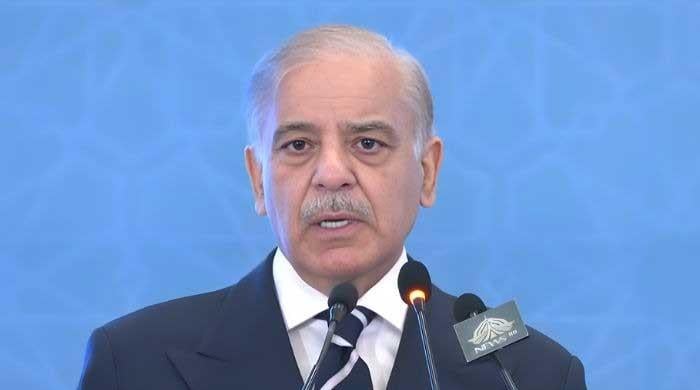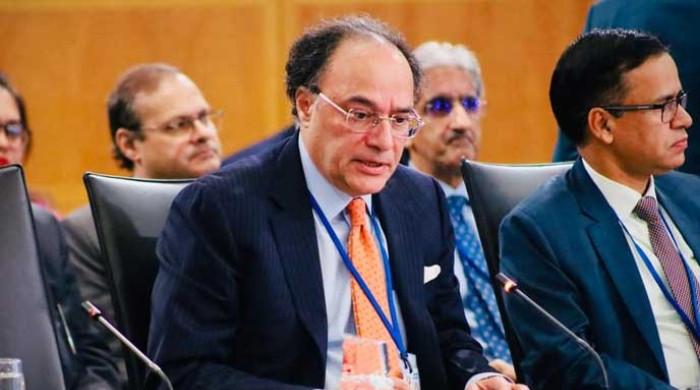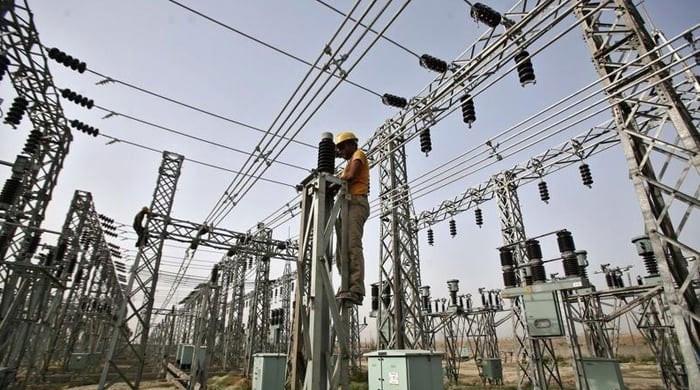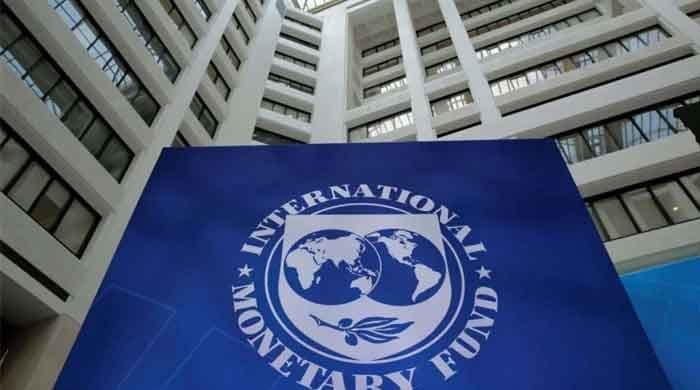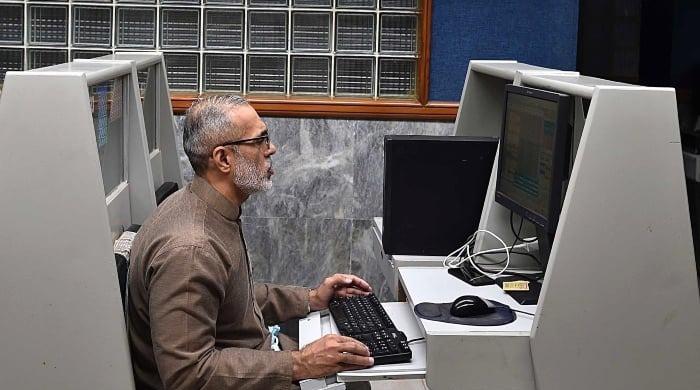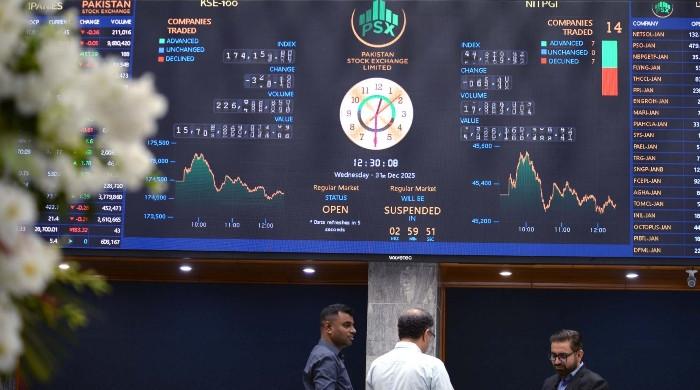Whither austerity drive?
PM Shehbaz's govt has allowed dramatic increase in salaries of parliamentarians in recently presented federal budget
June 13, 2025
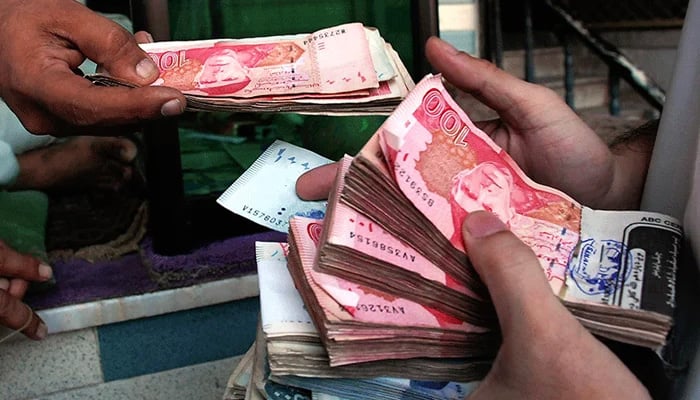
ISLAMABAD: In a stark reversal of its earlier commitment to financial restraint, the Shehbaz Sharif government has allowed a dramatic increase in the salaries and perks of the parliamentarians.
These raises fly in the face of the austerity measures once championed by the Shehbaz Sharif-led administration. Just two years ago, during his previous tenure (2022–23), the government proposed significant cuts to the salaries and benefits of cabinet ministers, lawmakers, and even judges, as part of a broader effort to curb excessive public spending.
The National Austerity Committee (NAC), established by Shehbaz Sharif himself, had recommended capping pensions at Rs500,000 a month — primarily aimed at addressing the growing financial burden posed by retired high court and Supreme Court judges. However, the government left the responsibility of implementing these recommendations within the judiciary to the Chief Justice of Pakistan.
In a striking about-face, the current Shehbaz Sharif administration has now proposed a five-fold increase in the salaries of the Speaker and Deputy Speaker of the National Assembly, as well as the Chairman and Deputy Chairman of the Senate.
Almost a month back the salaries of federal ministers, ministers of state, and advisers were increased by 188% through a presidential ordinance issued by the government. The salary increase was effective from January 1, 2025.
The Federal Ministers and Ministers of State Salary and Benefits Amendment Ordinance 2025, was amended to set the new salary for both federal ministers and ministers of state at Rs519,000.
Earlier in January this year, the Finance Committee had approved a similar salary increase for members of the National Assembly (MNAs) and senators, bringing their monthly pay to Rs519,000, which will take effect from January 1, 2025.
Members from both the treasury and opposition benches set aside political rivalries to unanimously approve a 300% increase in their own salaries. When the move triggered public backlash, some PTI leaders attempted to distance themselves from the decision.
Last year, the government also doubled the salaries of superior court judges and substantially increased their pensions. Where retired judges once drew around Rs1 million a month, they now receive over Rs1.5 million, along with a variety of post-retirement benefits.
Following the adoption of the recent 26th Constitutional Amendment, the house rent for Supreme Court judges rose from Rs68,000 to Rs350,000 a month. Judicial allowances for apex court judges surged from Rs428,040 to Rs1,161,163.
Similarly, High Court judges saw their house rent increase from Rs65,000 to Rs350,000, and their judicial allowances jump from Rs342,431 to Rs1,090,000. These substantial hikes have directly affected the pension structure, allowing retired superior court judges to draw over Rs1.5 million a month — contradicting the very austerity measures previously advocated.
During Shehbaz Sharif’s 2022-23 tenure, the NAC had initially recommended a 15% reduction in the salaries and allowances of all legislators including MNAs, Senators, and MPAs but no action was taken.
The NAC had also proposed abolishing the longstanding practice of lawmakers identifying development projects — a system in place since 1985 that enables MNAs, MPAs, and Senators to influence public spending. Like many other recommendations, this one too was ignored and even in the present budget tens of billions are allocated for the MPs development schemes.
These developments come at a time when Pakistan continues to grapple with economic hardship and mounting debt, raising serious concerns about the government’s commitment to responsible governance.
Meanwhile, Information Minister Atta Tarar reaffirmed the government’s commitment to its austerity drive, stating that there is no question of reversing it. He emphasised that Prime Minister Shehbaz Sharif, in the latest cabinet meeting, specifically stressed the need to continue with the existing cost-cutting measures.
Tarar noted that the prime minister has taken notice of the proposed salary increases for the chairman Senate and speaker of the National Assembly, assuring the public that these increases will not be approved and will instead be revised downward.
However, Tarar explained that the salaries of cabinet ministers (majority of whom are not taking salaries) have been made equal to those of members of Parliament. Salaries of MPs were increased a couple of months back in current financial year.
This is not a quantum jump but an increase at level which will enable them to meet daily expenses. No increase in salaries had been done in a long time and this decision was taken by Parliament keeping in view genuine difficulties of MPs.
Originally published in The News




